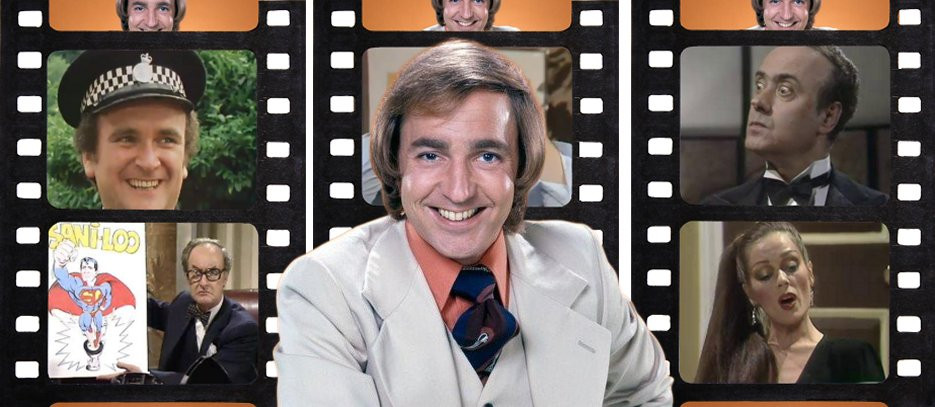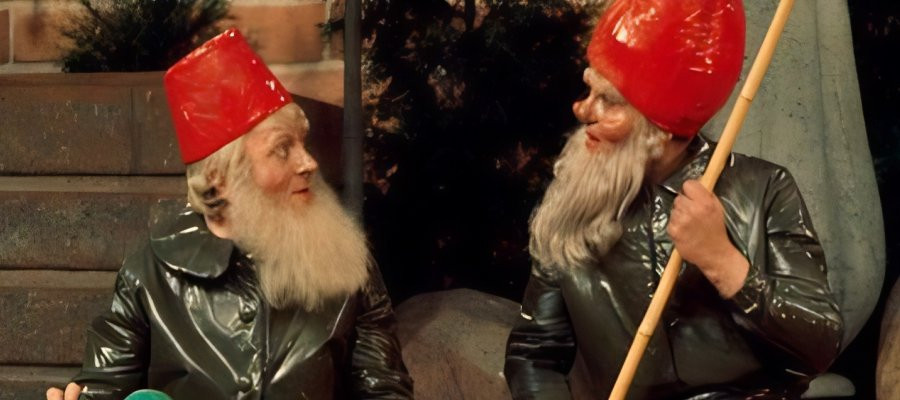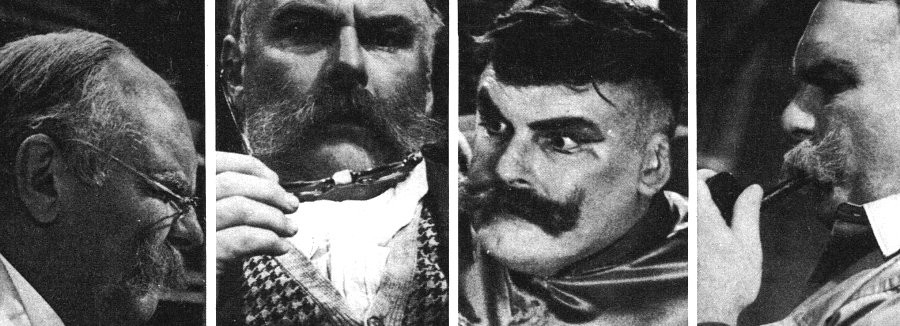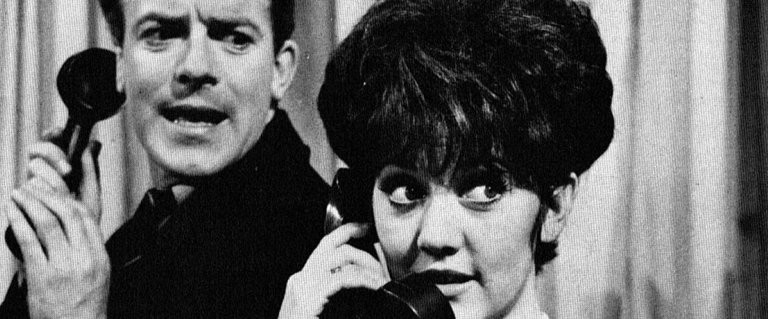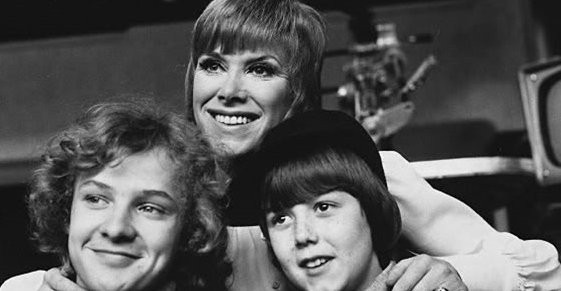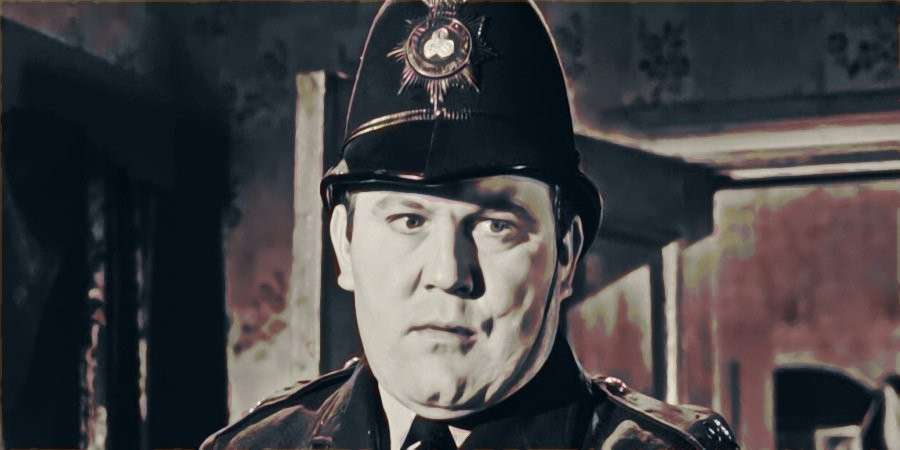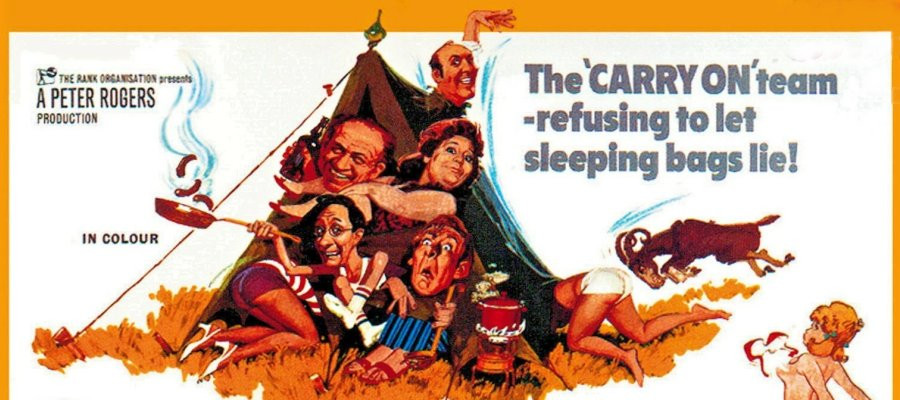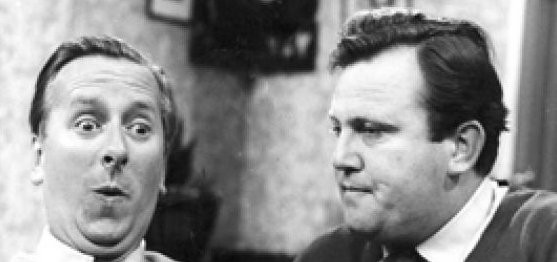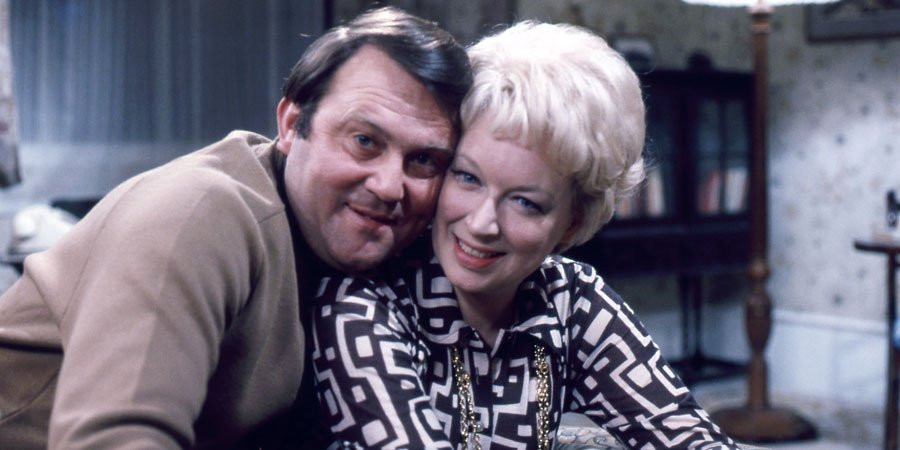
Terry and June
1979 - United KingdomWhile rustling through the archives in search of sitcoms of years gone by, one could be forgiven for thinking that Terry and June had been a flop.
Sneers and snipes from subsequent generations had been aimed at the show almost from its inception, but in actual fact this depiction of Middle England suburbia was a huge success for the BBC. It was even more so for its stars who had established a partnership so successful over its 20 years on screen that they were often believed to actually be husband and wife.
The start of the Terry and June story was actually 11 years before the renowned show appeared on our screens. In 1968, producer Kenneth Carter invited June Whitfield to his home to discuss the revival of a themed sketch show. The show would be titled Scott On… and would of course star Terry Scott. Each week, a topic would be selected – Scott On Marriage, Scott On the Sex War etc – and Scott and Whitfield would play a suburban husband and wife team at some point within each show. Penned by Dave Freeman, Barry Took and Marty Feldman, the programme was a significant success and after six years, producer Peter Whitmore felt it was a good idea to spin Terry and June off into their own sitcom.

Terry Scott decided that the show should be about a couple whose children had flown the nest, leaving them to deal with just one another and a bizarre Aunt Lucy and her mynah bird. The show was Terry and June in all but title – it was named Happy Ever After.
Happy Ever After survived for five years, and although a ratings success, critics already had the knives out for it. By 1979, co-writer John Chapman felt that there was nothing left for the show to cover, but the BBC were having none of it. Eric Merriman, Chapman’s writing partner, dug his heels in and so rather than employ new writers and risk a legal fallout, the BBC simply decided to lift the show and its characters in all but name into a new programme, the more famous Terry and June.
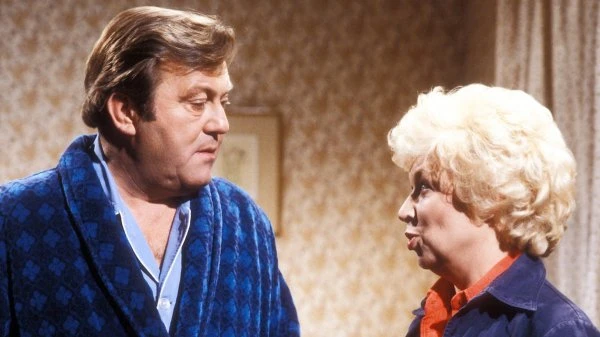
For the newly titled programme, the surname changed from Fletcher to Medford and Aunty Lucy’s character was lost, but essentially it remained the comedy equivalent to a comfy pair of slippers. It did gain the gruff Reginald Marsh as Terry's dictatorial boss whom Terry seemed always to be trying to impress, normally aided by his good lady wife when trying to smooth over slapstick situations and unfortunate misunderstandings.
Scott himself suffered a brain haemorrhage that nearly brought the new show to a premature end, but he made a full recovery from a life-saving operation. Nonetheless, health would continue to be an issue. His drinking and smoking didn’t help, and by the time Terry and June went off the air in 1987, he was almost paralysed down his left side and was often forced into wearing a neck brace for both stage and screen performances.
The biggest problem Terry and June faced was the changing face of British comedy. Even as it started out in 1979, some were queuing up to take pot-shots at its depiction of the middle classes. Certainly the approach of the working man trying to impress his boss and climb the professional and social ladder, with the little woman supporting him from the suburban kitchen would be unlikely to win any plaudits now. But despite all the derisory reviews thrown at it during its nine series, it couldn’t be shaken from the ratings.
The BBC were in a quandary. Seen as the principal target of those who felt the corporation was too set in its ways, Terry and June was nonetheless still pulling in more than 10 million viewers at a time when it was ridiculed by the generation now watching The Young Ones, Not the Nine O’clock News and the emerging rebellious Channel 4 schedule. Their answer was to give in to the critics and so they pulled the plug on Scott and Whitfield’s domestic bliss in 1987.
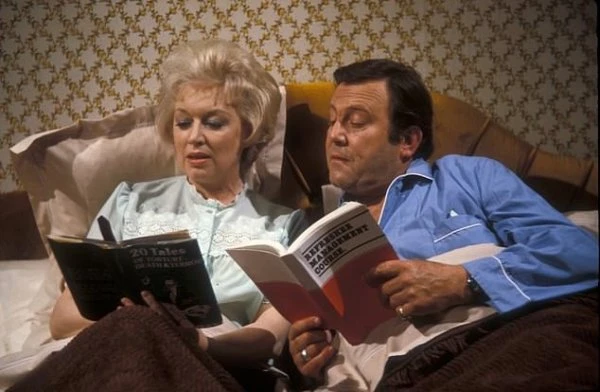
It was a decision they swiftly rescinded, but with writer John Kane already committed to another project with the Royal Shakespeare Company they were told they would have to wait until he became available. And with that, the BBC decided that rather than wait they would bring the curtain down.
Terry and June isn’t seen in the nostalgia channels’ schedules very often. It is tame by modern standards, as was Happy Ever After before it, but its stars were genuine ones and its success undeniable. With hindsight, the comfortable life depicted in the shows were hardly deserving of the criticism they attracted. Well written and superbly executed by its principal players, its longevity proved that far from being a stereotype to be shot at, Terry and June was a likeable escape that deserves a kind place in the annals of British television.
About the Reviewer Brian Slade
Born and raised in Dorset, Brian Slade turned his back on a twenty-five year career in IT in order to satisfy his writing passions. After success with magazine articles and smaller biographical pieces, he published his first full-length work, `Simon Cadell: The Authorised Biography'.
Brian is a devoted fan of the comedy stars of yesteryear, citing Eric Morecambe, Ken Dodd, Harpo Marx and Dudley Moore amongst his personal favourites. He was drawn to the story of Simon Cadell through not only Hi-de-hi! but also Life Without George, a programme he identified with having grown up in the Thatcher era.
Seen this show? How do you rate it?
Seen this show? How do you rate it?
Published on November 22nd, 2019. Written by Brian Slade for Television Heaven.


